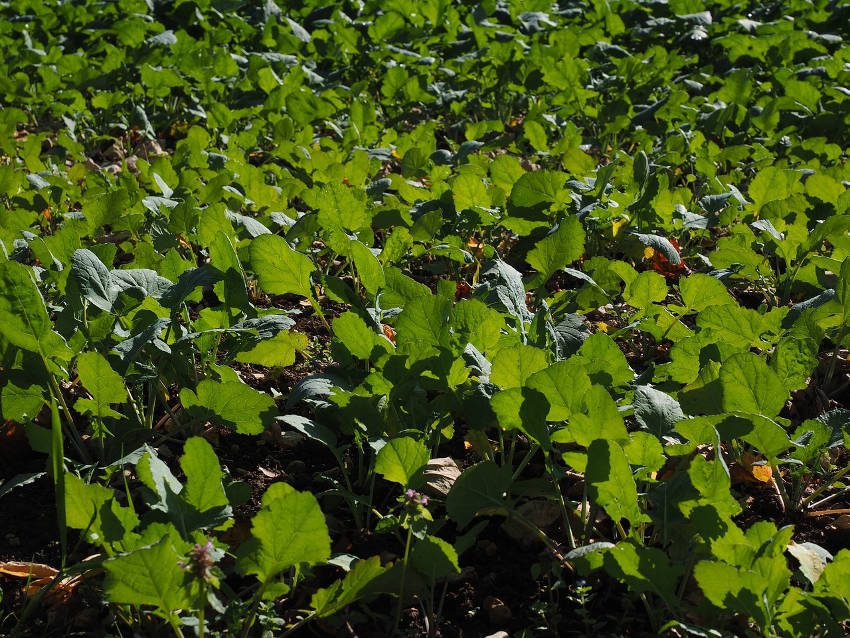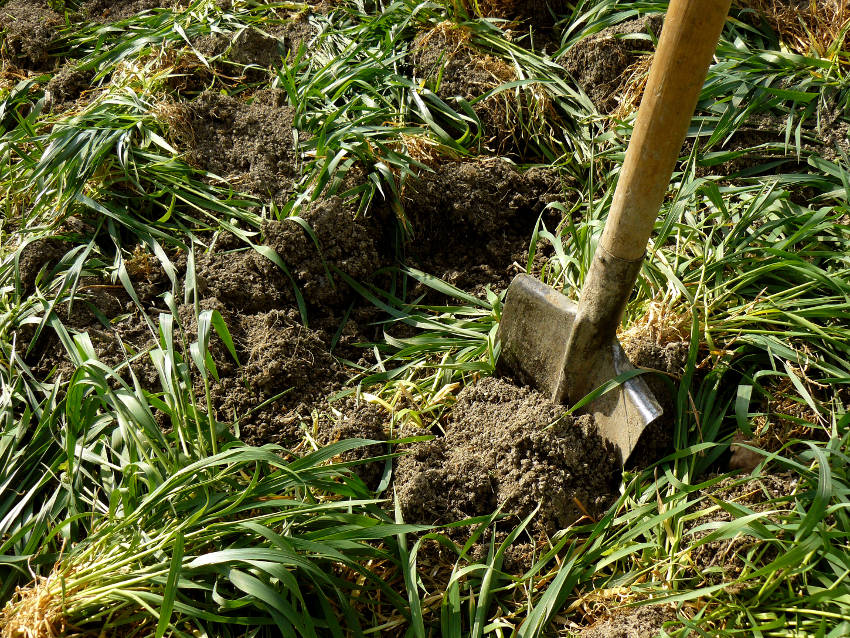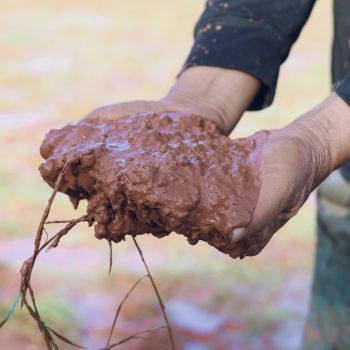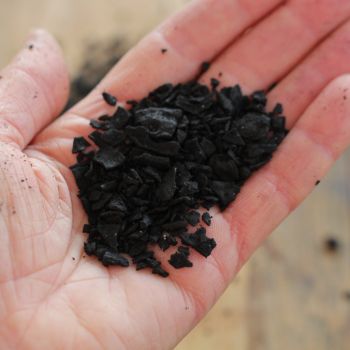Experienced veggie growers know that working with nature is always better than putting up a fight. Nowhere is this more important than taking care of your soil - after all, it's the foundation for all your growing effort. In recent years the use of chemical fertilizers is falling in popularity, being widely replaced by organic or sustainable methods, and the soil-boosting power of a good compost can't be underestimated.
However, there's another soil improvement technique that's completely natural, sustainable, and gaining wider acceptance as more and more people recognize the benefits. That technique is known as green manure.
What Is a Green Manure?
Also called a compost crop or a fallow cycle crop, green manure is a class of plant sown purely to improve the soil quality, in preparation for a later sowing of more recognisably productive crops.
They're usually grown during a vegetable patch's downtime, whether this is over winter or during a fallow period in crop rotation. Most green manure crops are quick to grow and will come and go within a few months, but others can be used as longer-term soil protection if a patch is going to be otherwise uncultivated.
Green Manure Benefits
The most immediate benefit of green manure is that it provides fast ground cover, suppressing weeds, reducing erosion, and helping to slow leeching of precious nutrients in unprotected soils.
Many crops will also actively improve soil texture, firstly through their vigorous root growth, and secondly when their organic matter is dug back into the ground at the end of the crop. As if this wasn't enough, many green manure plants are attractive to pollinating insects, and some such as rocket are said to help prevent build-up of disease in the soil.
However, for most vegetable growers, the prime benefit of green manure is the way in which they deal with nitrogen, a vital nutrient which many cash crops rely on. They can help with nitrogen management in two separate ways.
Fixers and Lifters
Green manure legumes such as peas and beans fix nitrogen into the soil for use by later crops. Their root systems contain bacteria called rhizobia which take nitrogen from the air within the soil, and make it available as a fertilizer for their host plant.
When the plant dies, this nitrogen is released back into the soil, but in a form which is much easier for plants to take up. This is an extremely effective way of fertilizing the soil without resorting to chemicals.
Other green manure choices such as buckwheat or mustard deal with nitrogen in a different way, known as lifting. If the soil has too high a level of nitrogen, many plants will grow lush and green but with greatly reduced flowering and cropping.
Nitrogen-lifting green manure will mop up this excess nitrogen, converting it into plant matter, and then releasing it again slowly as it decays. This provides nitrogen-sensitive crops with a more stable environment to grow in.
Popular Green Manure Crops
In theory, any plant can be used as a green manure, so long as it's reasonably fast-growing and provides good ground cover. However, certain plants are particularly popular as they provide an excellent combination of qualities, from weed suppression to nitrogen actions.
- Broad Beans - A vigorous legume which fixes nitrogen into the soil, but also provides plenty of organic matter to be dug in later.
- Mustard Greens - These are one of the best nitrogen lifters, and grow very quickly, making them an easy and economical way of covering a large area.
- Buckwheat - Quick growing, attracts insects, provides great ground cover, and actively improves the soil by lifting nitrogen and drawing phosphates to the surface.
- Fenugreek - One of the fastest-growing green manures, with the whole cycle taking around ten weeks from sowing to digging in.
- Clover - Ideal for longer-term fallow periods, producing flowers which attract beneficial insects.
- Alfalfa - Fast growing with deep roots, valuable for improving soil texture and bringing nutrients to the upper soil
- Corn Salad - Highly prolific and quick-growing.
- Radish - Quick to germinate, and provides plenty of green, leafy organic matter to dig in.
As good as these individual choices are, one excellent option is to buy a pre-made mix of different seeds suitable for sowing at the same time. They'll offer a good combination of the various benefits, but as they come from different families, can safely be used in any slot in a rotation scheme as no one plant type will dominate.
How to Grow Green Manure
1. Prepare the soil as you would for a more usual crop, removing weeds and raking the surface to break up larger soil clumps. Some compost crops improve soil texture as they grow, but all seedlings appreciate an easier start in life, so make the soil as fine-textured as possible.
2. Sow the seeds according to instructions, but normally this will be through scattering relatively thickly rather than sowing in well-spaced drills.
3. Optionally, follow this with a layer of well-rotted animal manure or compost.
4. Fast-growing manures can be left until flowering before digging in, while slower-growing plants can be left for longer. However, don't allow any green manure to set seed unless you want it to enjoy a future role as a weed.
5. When the plants are ready for cutting, the smallest plants can simply be turned into the ground using a garden fork. Larger plants will benefit from a mowing before being dug in, while the very largest should be shredded or strimmed first.
In all cases, the idea is to distribute the organic matter evenly through the top layer of soil so that it can quickly decompose. Any particularly tough or woody plants should be moved to the compost heap.
6. When planning your green manure, make sure to leave plenty of time between digging in and sowing the next crop. Many of the most effective ground-cover plants have an allelopathic effect on the soil, discouraging germination of competitors, so allow around six weeks for this to pass before sowing again.
Give Your Soil the Green Manure Treatment
Soil management is vital for any veggie grower, whether you're working a small patch or a commercial-scale operation. Chemicals might provide a quick and easy solution for soil fertilization, but for long-term improvement plenty of organic matter is by far the better bet.
Green manure offers a sustainable way of giving your next cash crop a healthy, all-natural boost, without any of the long-term problems that relying on chemicals can create.
Browse our range of green manure seeds.


Browse our range of green manure seeds.





